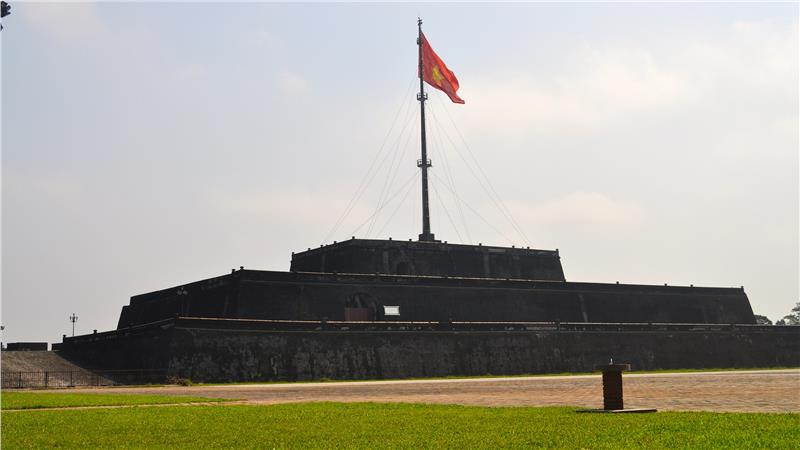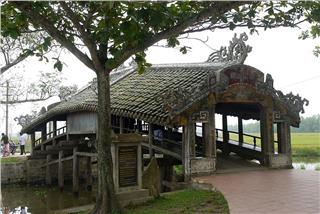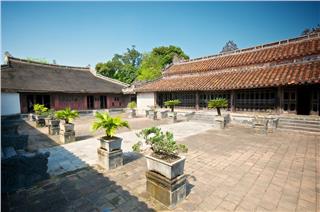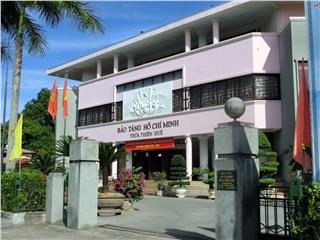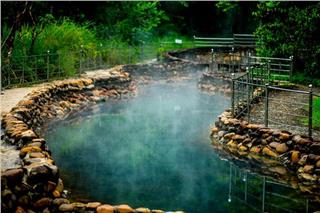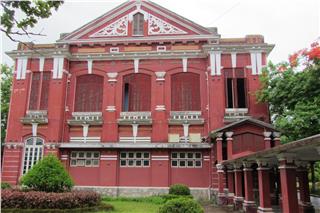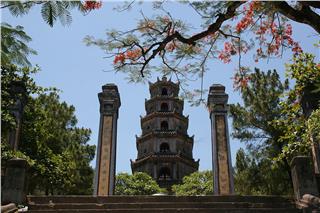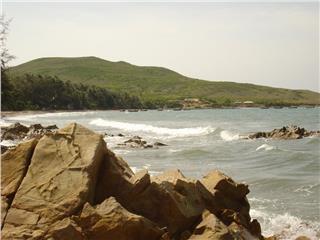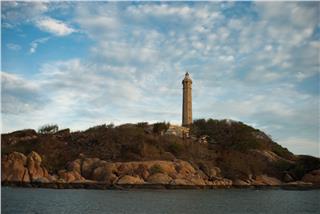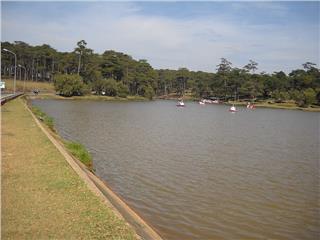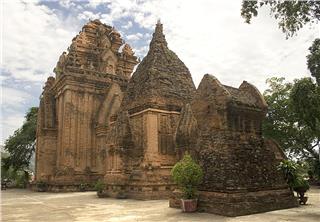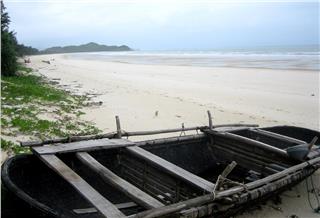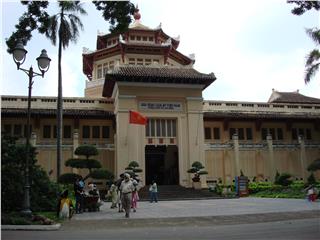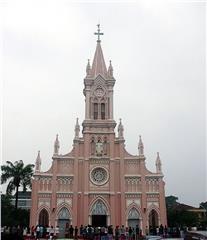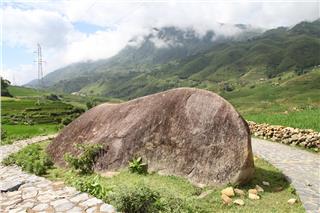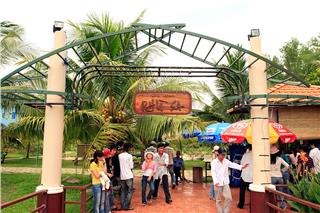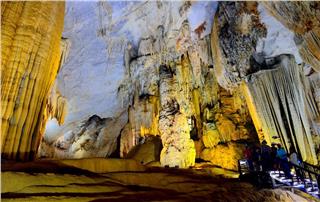As an architectural monument in Nguyen Dynasty, Flag Tower has long become one of the symbols of the ancient capital. Here, tourists have a chance to visit the unique architecture and get the deeper understanding on the history of this divine land.
Hue Flag Tower was officially built in the Gia Long VI (1807) with its original architecture relatively simple. By the reign of King Minh Mang, the Flag Tower was continuously remodeled in 1829, 1831 and 1840. It was built of brick consisting of three floors with three cubes stacked each other in descending order from bottom to top. As the original meaning of its name, Flag Tower is the high-rise buildings and used to fly Vietnamese flag under Nguyen Dynasty. Visiting the Flag Tower nowadays becomes one of the best things to do in Hue in the journey to discover the beauty of the ancient capital.
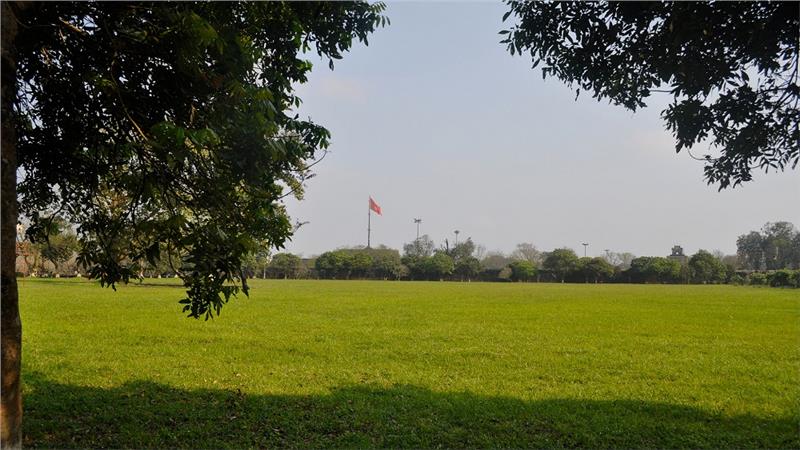
As one of the must-see tourist spots in Hue tours, Flag Tower also possesses unique architectural features. The height of the Flag Tower in each floor from the bottom to top is respectively 5,60m, 5,80m and 6m. The ground links the first floor with a small path on the left of Flag Tower. The downstairs connects with the middle floor by a 4m wide arch; meanwhile, the middle floor associates with the top floor thanks to a 2m wide arch. Peaks on each floor also offer a railing system 1m high and are decorated with empty molded marble tiles. The 3rd floor is tiled with square and massive bricks. The drainage system is also designed here. Previously, Flag Tower included 2 belvederes and 8 cannons. The first flagpole was made of wood with the height of 29,50m. In 1904, it was replaced with cast iron. In 1947, the flagpole was destroyed as the result of the war and then was substituted by concrete flagpole as today.
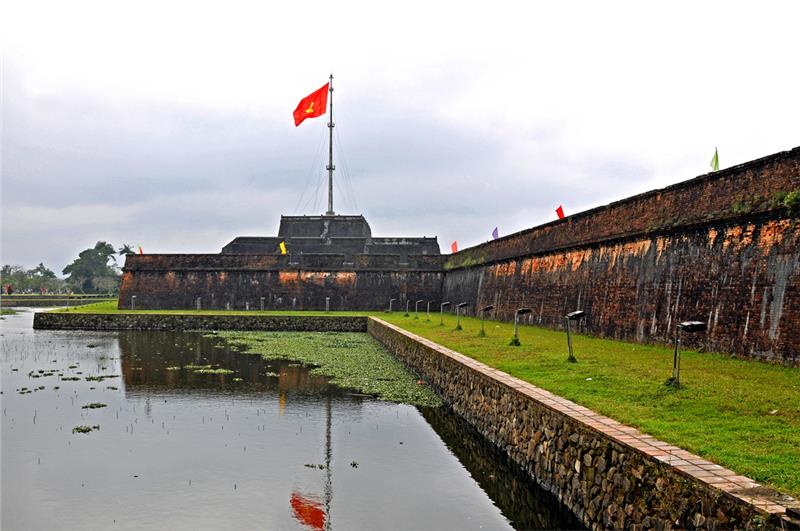
Vietnam history has undergone numerous heroic feats and one of these events associated with Hue, with Flag Tower and with Ngo Mon Gate. Two days after the red flag and yellow star flying on Hue Flag Tower, the August Revolution broke out in Hue on 23/08/1945. Also here, at the foot of Flag Tower and in front of Ngo Mon Gate, a rally held to celebrate to transfer the seal of the king and publish the manifesto of Emperor Bao Dai's abdication before the delegation of Central Government, which ended feudalism lasting thousands of years in Vietnam country. The event ushered a new era, a new society for the development of the country. The Flag Tower is considered as a witness of this historical moment.
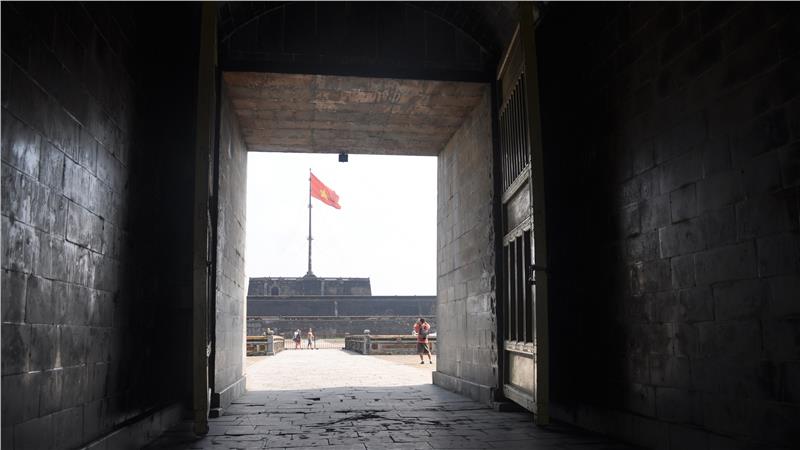
As one of the impressive attractions in Hue, the most impressive viewing angle to contemplate Flag Tower is on the highest railing in the east of Nam Giao. It is also the one of the best views overlooking Hue city. Nam Giao together with Hue Flag Tower creates the complex of Nam Giao - Flag Tower, which is the most beautiful landscape of the Citadel not only offering wide open space but also covering the structure of the Imperial Citadel. Seen from Le Loi Street is the image of prominent Hue Flag Tower with Phu Van Lau, Thuong Bac Wharf and turquoise Huong (Perfume) River in front, Ngo Mon Gate, ancient Hue Citadel behind.
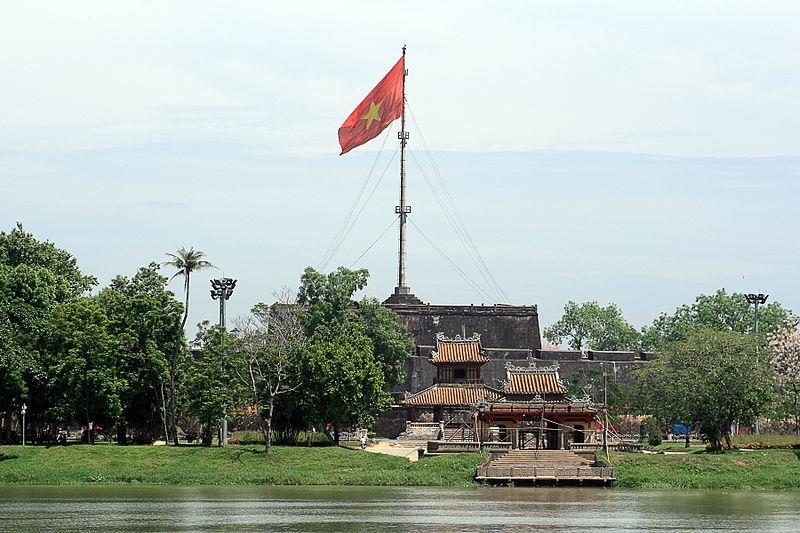
The relic complex of Hue Flag Tower, Phu Van Lau, Ngo Mon Gate and Ngo Mon Square is the center of the events and festivals of ancient land. Spring Flower Fair is considered as a special emphasis on the country's image welcoming the spring. Moments greeting New Year, image of the majestic Hue Flag Tower is brilliant in fireworks light. Festival Hue, a Hue brand in integration and innovation, also celebrates the opening and closing ceremonies at this sacred venue. Flag Tower deserves a symbol and Hue attraction where tourists should once set foot in. Here, tourists will actually get unforgettable emotions.
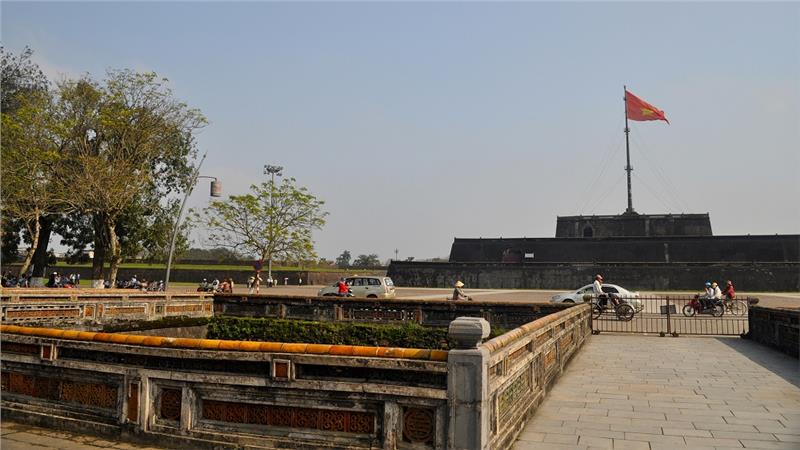
Along with ups and downs of Hue, Flag Tower has become an indispensable part of people's consciousness when referring to the ancient capital region. Flag Tower is one of the symbols of the Citadel. From the remote villages or isolated regions, from the sea or in the jungle, everyone can contemplate the flagpole and make sure that there once existed a capital having operated for the survival of country for nearly 200 years. Along with Hue Citadel, Flag Tower always the impressive relics attracting both domestic and international tourists to dreaming Hue travel.
